#jacques nolot
Explore tagged Tumblr posts
Text
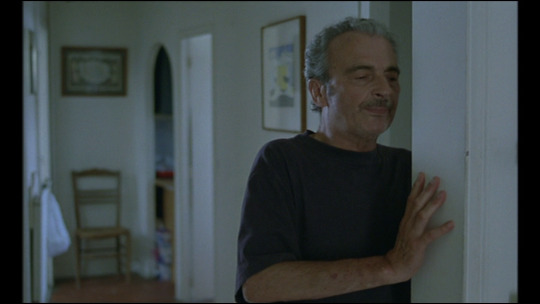
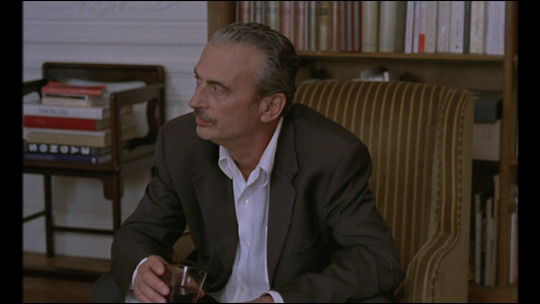
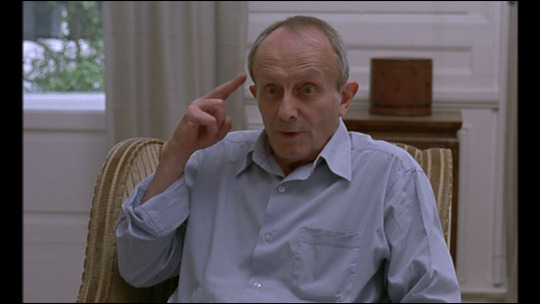
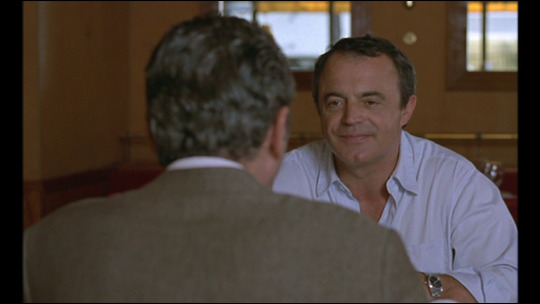

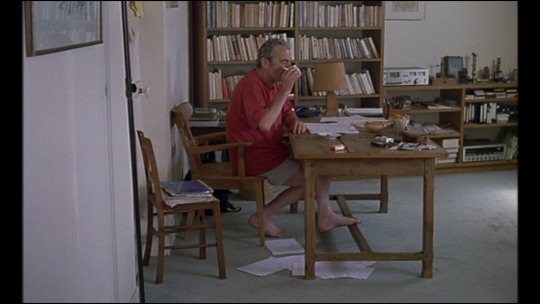

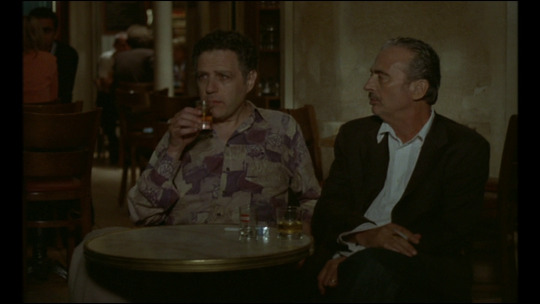

Avant que j'oublie 2007
0 notes
Text
Nénette and Boni (1996)
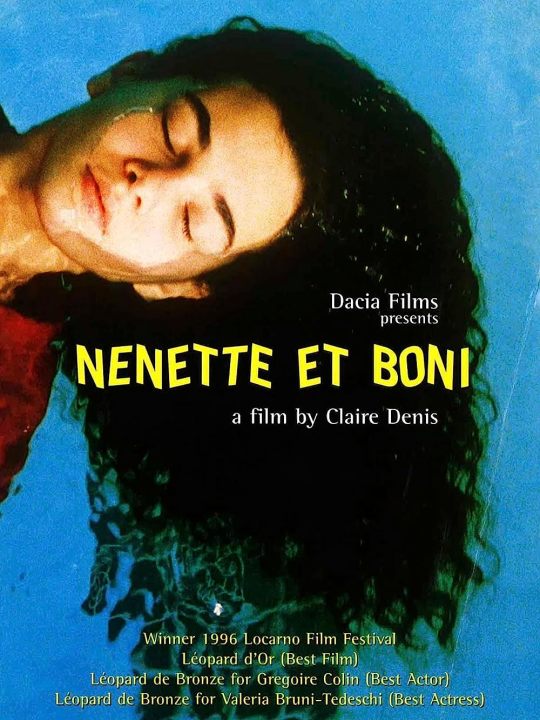
Movie #1,083 • Part of My CLAIRE DENIS Director Focus
Above all else, Denis just drops you into a world. There's not much preamble or setup. You have to figure it out for yourself. In this sense, the camera doesn't really exist in any traditional way. One second Vincent Gallo is dressed like a sailor boy and the next our titular leads are blowing their shithead dad's brains out and fleeing on a motorcycle. Some of this is clearly the work of a demented imagination and/or dreaming but the points of delineation are not marked in a familiar fashion. Everything feels like an extension of Boni's psyche (psychosis?) but that's not quite right either. The audience is meant to float in an ether along the periphery of these characters and despite the lack of conventional development, they're as rich and colorful as any you'll likely come across.

Mothers and sons. Fathers and daughters. There’s some truly freudian shit here. This movie begs you to ask questions nobody really wants to know the answers to.
SCORE: ⭐️⭐️⭐️⭐️⭐️⭐️⭐️⭐️⭐️½
#9.5#claire denis director#1996#🇫🇷#drama#grégoire colin#alice houri#jacques nolot#valeria bruni tedeschi#vincent gallo#malek brahimi#gérard meylan#alex descas
0 notes
Photo
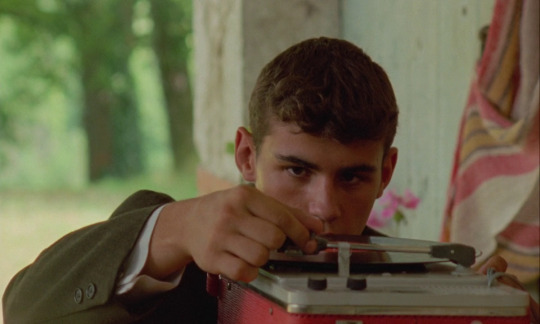
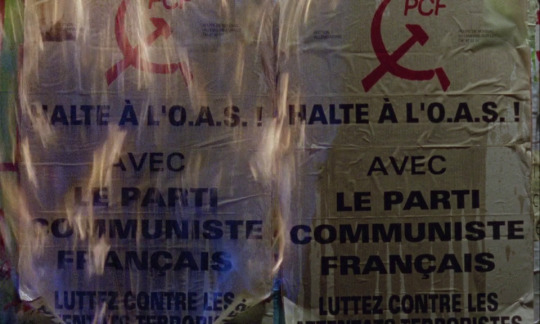
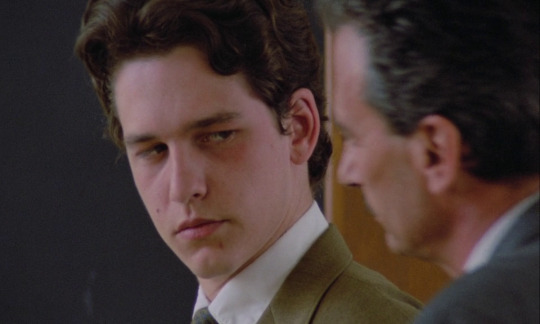
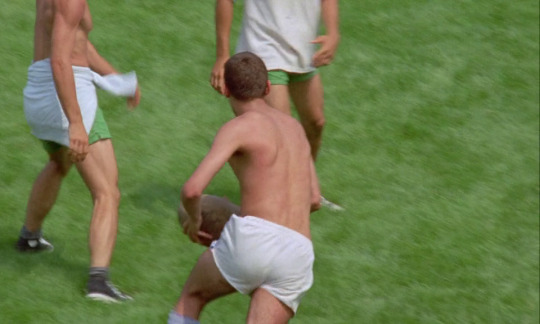

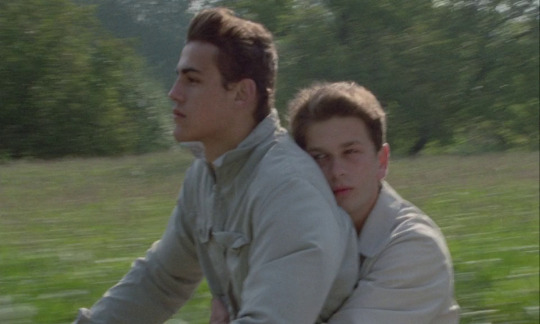




André Téchiné - Wild Reeds (1994)
#film#andre techine#wild reeds#les roseaux sauvages#stephane rideau#frederic gorny#jacques nolot#gael morel#elodie bouchez#1994
250 notes
·
View notes
Photo

The Forbidden Room
directed by Guy Maddin and Evan Johnson, 2015
#The Forbidden Room#Guy Maddin#Evan Johnson#movie mosaics#Roy Dupuis#Clara Furey#Noel Burton#Jacques Nolot#Ariane Labed
4 notes
·
View notes
Photo
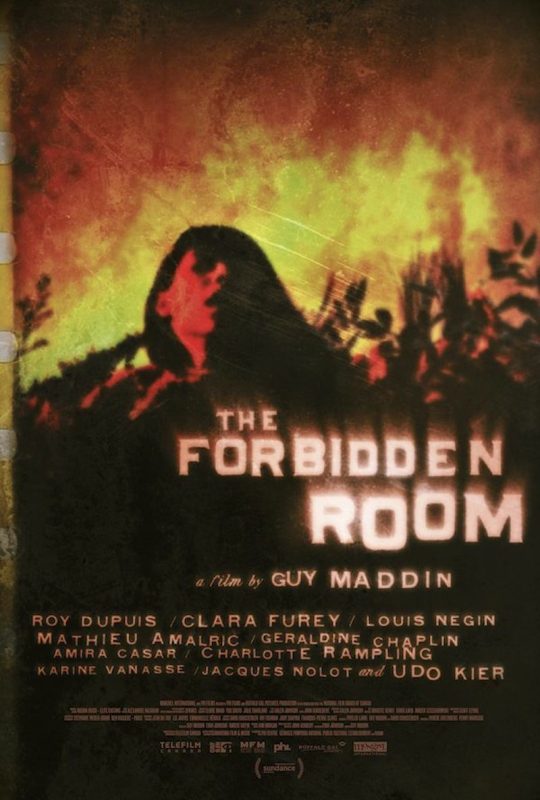
The Forbidden Room (2015) was one of my favorite films in the year it was released. In 2021, I’m still captivated by this surreal phantasmagoria of imaginary lost films.
This movie has a nesting doll-like structure. It begins with a man teaching you how to take a bath. The camera flows into the drain and we’re in a doomed submarine. A woodsman appears in the submarine, and remembers how he was searching for a kidnapped woman named Margot. Margot dreams that she’s a singer in a night club with no name, but she can’t remember who she is. The crooner takes the stage and sings a song about a man who repeatedly begs a doctor to lobotomize him in order to rid him of his lust for butts.
That song, “The Final Derriere” by Sparks, is one of the greatest original songs ever written for a film. By this point, you’ve completely forgotten how you’ve gotten here, so we go back to Margot at the club, back to kidnapped Margot, the woodsman, the submarine, the bathtub. And then we go back down again, into a volcano’s dream, a newspaper story, a mustache’s lament, etc.
There aren’t many truly great contemporary surrealists, with David Lynch being the most notable. The Forbidden Room is a celebration of film, dreams, and surrealism, all of which it sees as the same thing. It celebrates the history of cinema by imagining these fantastic titles, and while the connections between each nested story are brilliant, it’s easy to forget how you got somewhere. Because dreams don’t really begin or end, they just happen. The details fade and all you remember is the climax.
The Forbidden Room is pure imagination. It’s hilarious and inspiring. If you feel like getting lost in dream after dream, I highly recommend this singular film. If you just want a taste, watch the music video I linked above.
Women Skeletons!
#The Forbidden Room#Guy Maddin#Roy Dupuis#Clara Furey#Louis Negin#Mathieu Amalric#Geraldine Chaplin#Amira Casar#Charlotte Rampling#Karine Vanasse#Jacques Nolot#Udo Kier#movies#posters#film#surrealism#Evan Johnson#surreal#cinema
10 notes
·
View notes
Photo
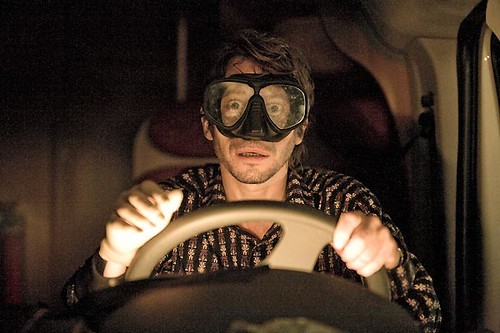
Happy End (Les derniers jours du monde), Arnaud Larrieu and Jean-Marie Larrieu (2009)
#Arnaud Larrieu#Jean Marie Larrieu#Mathieu Amalric#Catherine Frot#Karin Viard#Sergi López#Clotilde Hesme#Omahyra#Sabine Azéma#Pierre Pellet#Manon Beaudoin#Serge Bozon#Jacques Nolot#Christophe Paou#Thierry Arbogast#Annette Dutertre#2009
1 note
·
View note
Video
youtube
The Forbidden Room | Trailer | NYFF53
Film at Lincoln Center
Guy Maddin's The Forbidden Room will have its New York Premiere at the 53rd New York Film Festival, which runs September 25 - October 11. More info: http://filmlinc.org/NYFF
The four-man crew of a submarine is trapped underwater, running out of air. A classic scenario of claustrophobic suspense—at least until a hatch opens and out steps… a lumberjack? As this newcomer’s backstory unfolds (and unfolds and unfolds in over a dozen outlandish tales), Guy Maddin, cinema’s reigning master of feverish filmic fetishism, embarks on a phantasmagoric narrative adventure of stories within stories within dreams within flashbacks in a delirious globe-trotting mise en abyme the equal of any by the late Raúl Ruiz.
Collaborating with poet John Ashbery and featuring sublime contributions from the likes of Jacques Nolot, Charlotte Rampling, Mathieu Amalric, legendary cult electro-pop duo Sparks, and not forgetting muses Louis Negin and Udo Kier, Maddin dives deeper than ever: only the lovechild of Josef von Sternberg and Jack Smith could be responsible for this insane magnum opus. A Kino Lorber release.
More info: http://filmlinc.org/ Subscribe: http://www.youtube.com/subscription_c... Like: http://facebook.com/filmlinc Follow: http://twitter.com/filmlinc
#Guy Maddin#The Forbidden Room#New York Premier#53rd New York Film Festival#Raúl Ruiz#John Ashbery#Jacques Nolot#Charlotte Rampling#Mathieu Amalric#Sparks#Louis Negin#Udo Kier#Josef von Sternberg#Jack Smith#A Kino Lorber release#Kino Lorber#Film at Lincoln Center
1 note
·
View note
Photo
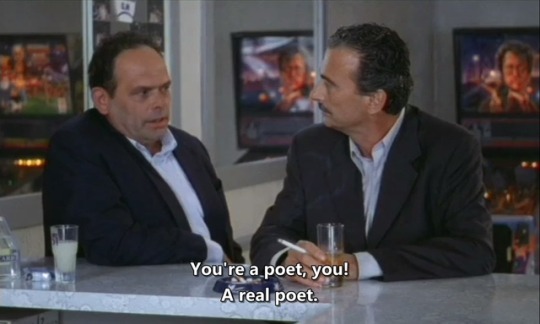
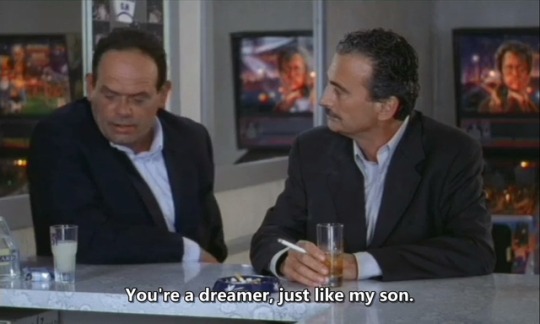
L'arrière pays(1998) dir. Jacques Nolot
9 notes
·
View notes
Photo
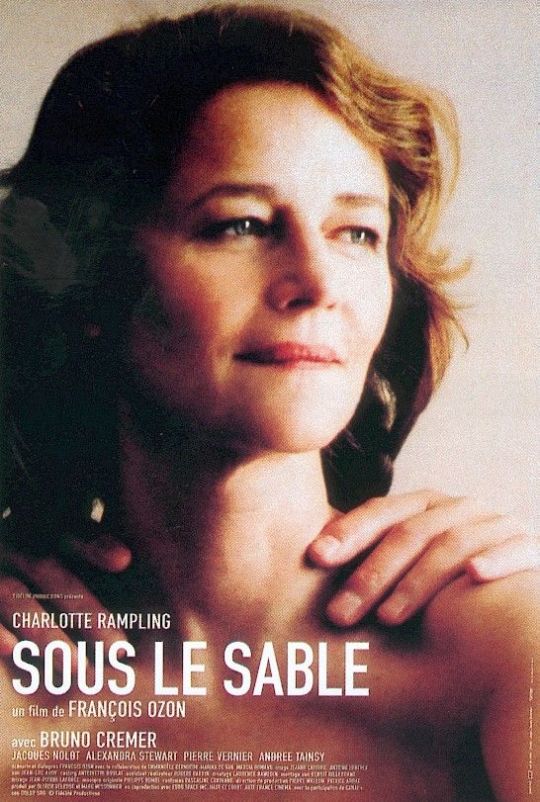



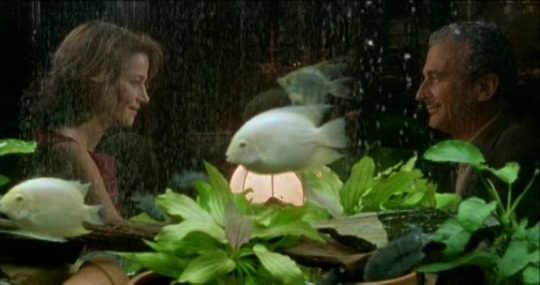

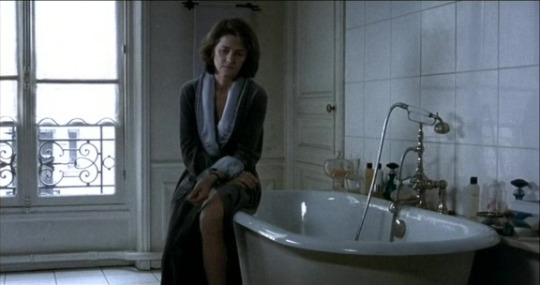

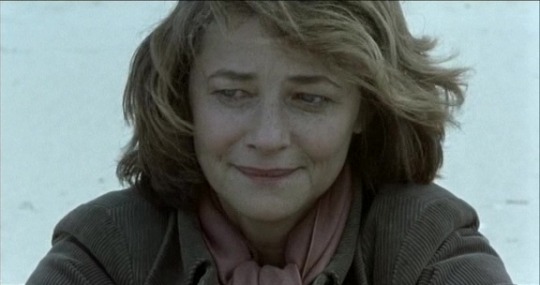
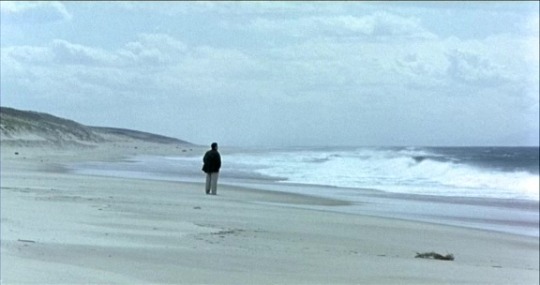
Under the Sand / Sous le sable (2000, François Ozon)
10/9/18
#2000s#Under the Sand#Sous le sable#Francois Ozon#Charlotte Rampling#Bruno Cremer#Jacques Nolot#Alexandra Stewart#drama#mystery#French#European Art House#missing person#beach#teachers#denial#delusions#fantasies#ghosts#sea#vacation#grief#college#Paris
27 notes
·
View notes
Text
1.15.20
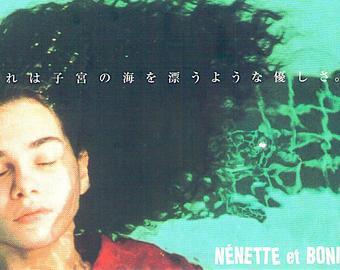
#watched#film#letterboxd#nenette and boni#claire denis#grégoire colin#alice houri#jacques nolot#valeria bruni tedeschi#vincent gallo#alex descas
0 notes
Photo
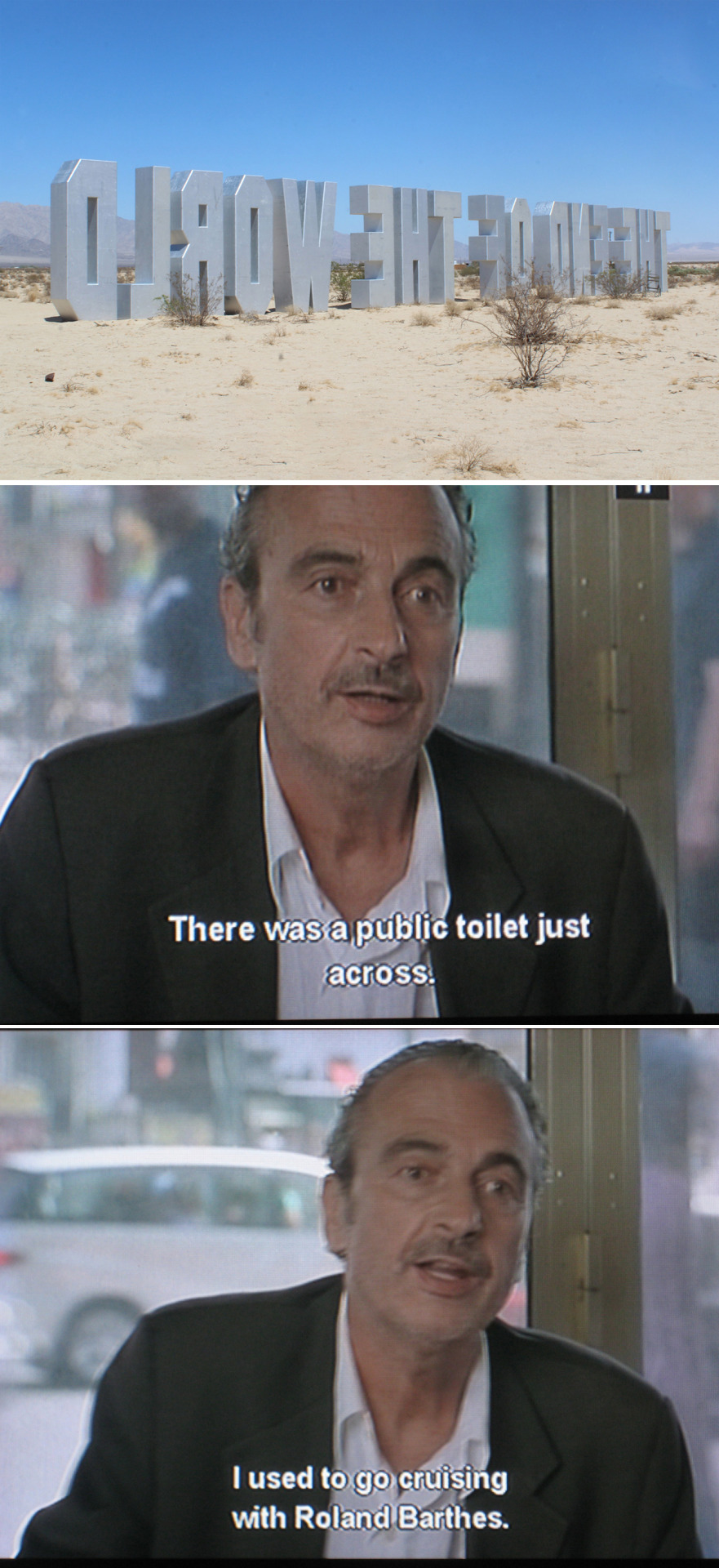
Top, Jack Pierson, The End of The World, 2022, site-specific installation part of High Desert Test Sites on view through May 22, dimensions variable. Via. Bottom, screen captures from Avant que j’oublie (Before I forget), directed by Jacques Nolot, 2007. Via.
--
The economy of presence is not only relevant for people whose time is in demand and who could basically sell (or barter) more time than they have, but even more so to those that must work multiple jobs in order to make a living or even not make a living. It is equally relevant to those who coordinate a jumble of micro jobs, complete with the logistical nightmare of harmonising competing schedules and negotiating priorities, or that are on permanent standby in the hope that their time and presence will become exchangeable for something else eventually. The aura of unalienated, unmediated and precious presence depends on a temporal infrastructure that consists of fractured schedules and dysfunctional and collapsing just-in-time economies in which people frantically try to figure out reverberating asychronicities and the continuous breakdown of riff raff timetables. It´s junktime, broken down, kaputt on any level. Junktime is wrecked, discontinuous, distracted and runs on several parallel tracks. If you tend to be in the wrong place at the wrong time, and if you even manage to be in two wrong places at the same wrong time it means you live within junktime. With junktime, any causal link is scattered. The end is before the beginning and the beginning was taken down for copyright violations. Anything in-between has been slashed because of budget cuts. Junktime is the material base of the idea of pure unmediated endless presence.
Junktime is exhausted, interrupted, dulled by Ketamine, Lyrica, and corporate imagery. Junktime happens when information is not power, but comes as pain. Acceleration is yesterday´s delusion. Today you find yourself crashed and failing. You try to occupy the square or bandwidth, but who is going to pick up the kid from school? Junktime depends on velocity as in the lack thereof. It is time´s substitute: it´s a crash test dummy.
Hito Steyerl, from The Terror of Total Dasein, 2015. Watch.
5 notes
·
View notes
Text
AGE OF UPRISING: THE LEGEND OF MICHAEL KOHLHAAS (2013)
— MOVIE REVIEW —
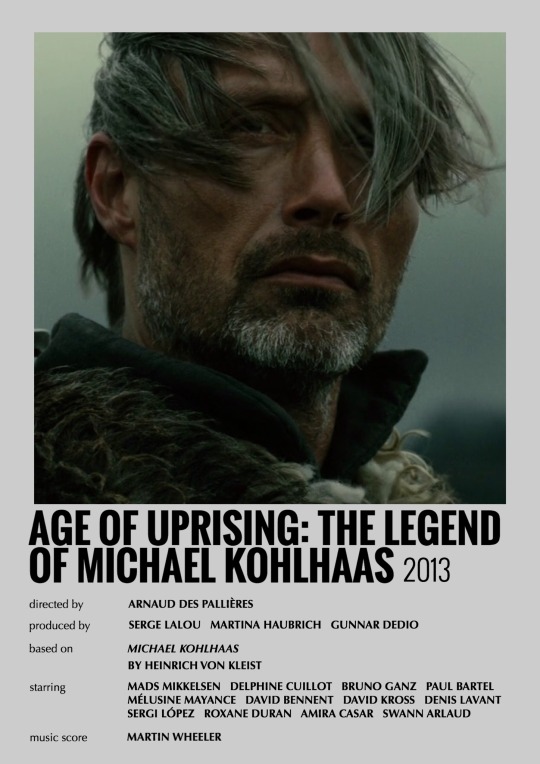
movie poster by @shakethispeare
CASTS
Mads Mikkelsen | David Bennent | Paul Bartel | Christian Chaussex | Swann Arlaud | Bruno Ganz | Delphine Chuillot | Mélusine Mayance | Jacques Nolot | Amira Casar | Roxane Duran
DIRECTOR
Arnaud des Pallières
PRODUCER(S)
Serge Lalou | Martina Haubrich | Gunnar Dedio
MUSIC SCORE
Martin Wheeler
GENRE
Drama , History
SYNOPSIS
Michael Kohlhaas (Mads Mikkelsen) is a horse merchant and leads a happy family life. But one day, two of his horses were abused by a baron who refuses to acknowledge Michael's lawsuit against it. Realized that he's been treated unfairly, Michael rises arms and wages war against him, demanding justice. The legend is based on a novella written by Heinrich von Kleist, a German author.
RUNNING TIME
02:01:26
MY RATING
6 / 10 — 🌕🌕🌖🌑🌑
REVIEW
How come I discover this movie just today? This was already out when Mads Mikkelsen starred as Hannibal Lecter in the TV series Hannibal. I KNOW IT IS CANCELLED BUT WHERE THE FUCK IS SEASON 4
The first time I saw Mads Mikkelsen was in Doctor Strange. He played as the villain, but I didn't realise it was him at the time. I wished Mikkelsen had a more prominent role in the MCU. But when he starred as Hannibal Lecter in Hannibal TV series, I fell in love with him. I’m planning to watch more of his films though.
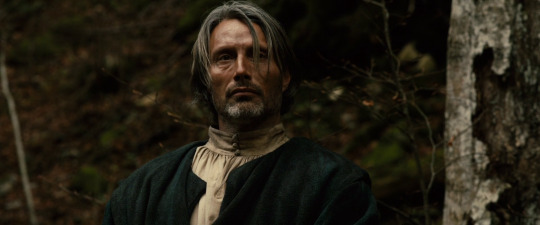
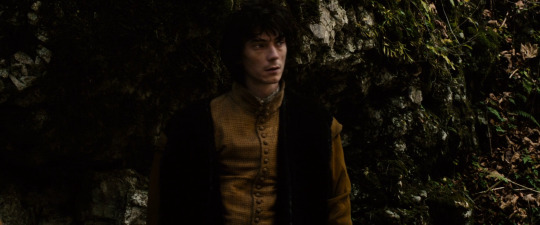
Age of Uprising: The Legend of Michael Kohlhaas is the German version of Robin Hood's tale. But the movie was entirely in French. The title of the film led me to believe that Mikkelsen was going to wage a violent war against the baron who had mistreated him, though, more specifically, his two shining black horses. I pictured it to be something like a coup d'etat, included with epic battle scenes and a lot of gore. You know, the usual in films about the Middle Ages. It turns out, it wasn't like that.
He still went to war, although, it's not the kind of war where you see one thousand men marching down an open field with spears and shields in hands. Nope. It was more like, if I have to picture this in the simplest way possible, it's basically like you gathering up a few of your closest friends to haunt (or maybe hunt) the person who had bullied you until they apologise.

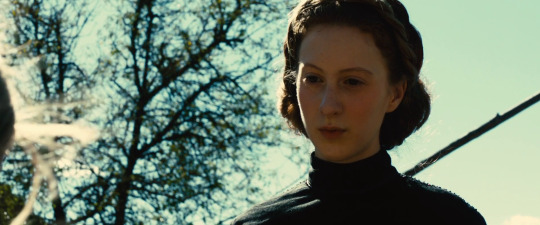
It's a straightforward story depicted in a stark manner, followed with smart dialogues. 30 minutes into the film, I feel the suspense was real. But then, somewhere along the way, I sensed it gradually slowed down. It's not as epic as I pictured. And to be honest, I found this film hard to grasp. Probably due to the movie's initial focus was more about politics. There is little action to be seen on-screen. Some moments happened fast and were aided with limited explanation. The two-hour run time only accentuated how slow the pace of the story is, which can be a burden to watch for some. I can't help but feel the points mentioned above caused this movie to be emotionally distant as well.
However, I won't deny the cinematography of this movie is pleasingly aesthetic. It's probably one of the few stunning medieval-themed films I've ever seen. The landscapes were beautifully photographed. Some scenes are a little dark to see, but I'm not too bothered by it. Although, some of the editings, especially cuts between some scenes, didn't settle well with me. Then, the soundtracks were atmospheric. The recognisable whistle of the European theme instruments brings the almost silent movie alive.

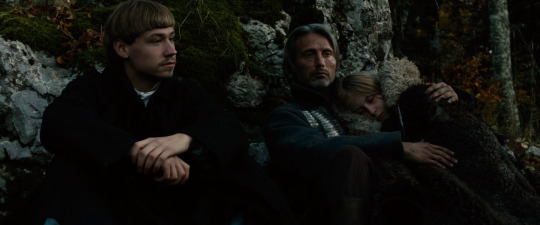
The casts were brilliant. Mads Mikkelsen portrayed Michael Kohlhaas with a stoic personality that captivates at the beginning of the story, his occasional brooding stare makes you wonder what he's going to do next. I still can't help but feel his talent was slightly wasted. He could have done so much more. But his face in the final scenes was heartbreaking enough.
I am not French, but I think Mads’ French was well done. Despite him being Danish.
Overall, I'd say this movie was okay. But Arnaud des Pallières' approach to the story might not be for everyone. If historical movies bore you, do not watch this. If movies with little dialogues annoy you, do not watch this too. But it's definitely a movie for those who are a fan of social justice.
#it is still quarantine#i did a movie review#kind of#movie reviews#age of uprising: legend of michael kohlhaas
3 notes
·
View notes
Link
Analyse du discours idéologique de « L’Adieu à la nuit » d’André Téchiné, qui met en valeur les sermons et la morale des anciens tout autant que la question générale de l'aveuglement.
#L’Adieu à la nuit#andré téchiné#film#movie#director#cinephile#author#catherine deneuve#kacey mottet klein#oulaya amamra#jacques nolot
0 notes
Text
È andato tutto bene
È andato tutto bene
Cinema: È andato tutto bene Un adattamento del romanzo omonimo di Emmanuèle Bernheim(mymonetro: 3,37) Regia di François Ozon. Con Sophie Marceau, André Dussollier, Géraldine Pailhas, Charlotte Rampling, Éric Caravaca, Hanna Schygulla, Grégory Gadebois, Jacques Nolot, La��titia Clément. Genere Drammatico – Francia, 2021. Durata 113 minuti circa. La vita di Emmanuèle Bernheim, scrittrice e…

View On WordPress
0 notes
Photo


L'arrière pays(1998) dir. Jacques Nolot
1 note
·
View note
Text
Nenette and Boni [Nénette et Boni] ** (1996, Grégoire Colin, Alice Houri, Valeria Bruni Tedeschi, Vincent Gallo, Jacques Nolot) - Classic Movie Review 9407
Nenette and Boni [Nénette et Boni] ** (1996, Grégoire Colin, Alice Houri, Valeria Bruni Tedeschi, Vincent Gallo, Jacques Nolot) – Classic Movie Review 9407
Co-writer/ director Claire Denis’s 1996 Nenette and Boni [Nénette et Boni] is a difficult, edgy, sometimes un-realised picture, with some good scenes and dialogue as well as a couple of persuasive, even attractive, star performances that help paper over the cracks of the film’s implausibilities and inscrutabilities.
The 15-year-old pregnant Nénette (Alice Houri) jumps school and arrives at the…
View On WordPress
0 notes